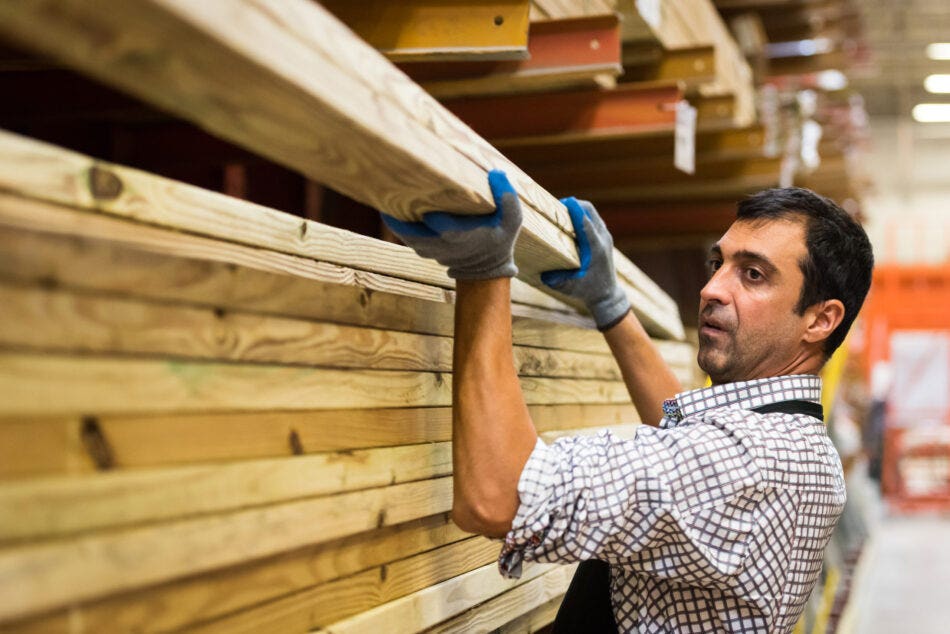The sharp increase in the cost of lumber, plywood and steel is affecting more than just construction-based businesses.
All businesses are at risk of being underinsured for replacement costs and falling short on their specified co-insurance percentage. (Co-insurance is a clause that requires commercial property holders to insure their property to a specified percentage of the true reconstruction value—usually 80 per cent, 90 per cent or 100 per cent. If the policyholder insures the property for less, they are deemed a “co-insurer” and agree to share any losses with the insurance company.)
Should your business experience a partial or total loss, the replacement costs will be subject to the current price of construction materials—which have skyrocketed in the past 12 months to levels never seen before. For example:
- The current cost of a basic lumber two-by-four is more than $1,000 per thousand board feet, compared to the annual average cost of $372 in 2019.
- The price of a standard plywood panel is approximately $1,200 per thousand, which is double the price from a year ago.
- Steel prices have more than doubled since November 2020 and currently sit between $1,300 and $1,400 per metric ton.
Businesses who are underinsured may also fall short on their specified co-insurance percentage; in which case the business must absorb a portion of the loss, meaning the claim payout may be significantly diminished.
Being underinsured and falling short on co-insurance requirements can be financially devastating for a business. That’s why we recommend you consider taking the following steps to protect your business from the drastic increase in the cost of construction materials.
Get an insurance appraisal
Could your policy limits cover the cost to repair or rebuild at the current cost of construction materials? Given the price spike, now is the time to re-evaluate your assets.
We cannot stress this enough—do not rely on your property assessment value (which calculates your property tax rate) or your realty assessment value (which estimates the price that your property could sell for). Neither of these calculations take into consideration reconstruction costs.
Instead hire a professional replacement cost appraiser or contractor to conduct an insurance appraisal, which takes into consideration the costs to reconstruct the property; complete site improvements; and complete demolition and debris removal.
Factors that are considered when determining the reconstruction cost of a building include:
- the current cost of construction materials
- labour costs
- building and fire codes
- upgrades to meet current bylaws
- architectural fees
- developer overhead and profit
- permit and inspection costs
To determine the cost of site improvements, an insurance appraisal takes into consideration the price of:
- roadways
- sidewalks
- fences
- exterior lighting
- landscaping items (i.e., grass, trees, shrubs)
As demolition and debris removal-related expenses are typically the first to be handled in the event of a claim, it’s important to have an accurate estimate—or you risk having limited funds remaining for reconstruction and site improvements.
As you can see, an insurance appraisal provides a much more accurate value should your business experience a partial or total loss.
Plus, in the event of a loss, your insurance appraisal report also provides accurate and documented evidence of your assets, which can help settle a claim more quickly.
Update your policy
Given the significant increase in the cost of construction materials, you may have to adjust the limits for your business. Work with your broker to update your policy, based on your insurance appraisal, to ensure your business is properly covered for losses and co-insurance requirements.
That said, don’t wait for your insurance appraisal to be complete before speaking with your broker. Contact us today so your broker can advise whether any immediate action needs to be taken in the interim.

